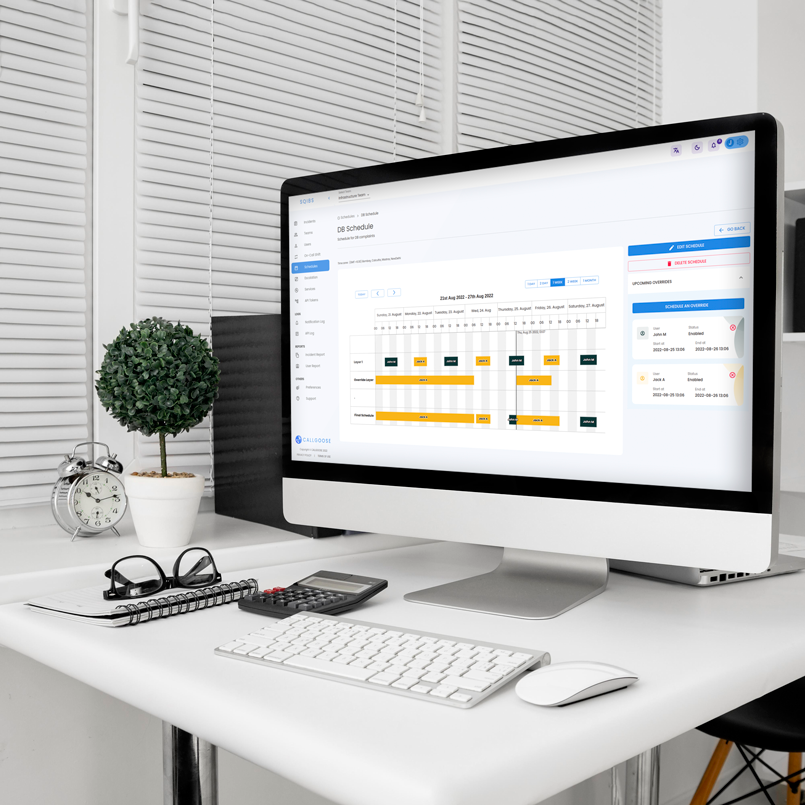Integrations
Freshworks Freshdesk
Integration of Freshworks Freshdesk with Callgoose SQIBS
Overview
This document provides a detailed guide to integrating Freshdesk with Callgoose SQIBS for Event-Driven Automation, Ticket-based Auto Remediation, and customer-facing workflow automation. The integration enables Freshdesk to send ticket-related webhook notifications to Callgoose SQIBS, which then triggers appropriate automation actions. Upon successful execution, Callgoose SQIBS can update and resolve the corresponding Freshdesk ticket and notify the end user.
Prerequisites
- Freshdesk Account: Admin access to configure webhooks and generate API tokens.
- Callgoose SQIBS Account: With necessary privileges to set up API filters and automation actions.
- API Token and Endpoint: Available in Callgoose SQIBS for receiving webhooks and sending ticket update requests.
1. Obtain API Token and Endpoint Details
To integrate with Callgoose SQIBS, you must generate an API token and obtain the API endpoint:
- Generate API Token:
- Refer to the guide: How to Create API Token in Callgoose SQIBS
- Find API Endpoint:
2. Configuring Freshdesk to Send Webhooks to Callgoose SQIBS
2.1 Create a Webhook Automation Rule
- Log in to your Freshdesk portal: https://www.freshworks.com/freshdesk
- Go to Admin (gear icon) > Workflows > Automations
- Select the event type:
- Use Ticket Creation for triggering on new tickets
- Use Ticket Updates for triggering on modifications
- Click New Rule
- Define conditions (e.g., priority is High, or subject contains "automation")
- Under Perform these actions, select Trigger Webhook
- Fill in the webhook details:
- Request Type: POST
- URL: https://<your_callgoose_instance>/sqibs/integration_endpoint
- Content Type: application/json
- Body Example:
{
"ticket_id": "{{ticket.id}}",
"subject": "{{ticket.subject}}",
"description": "{{ticket.description}}",
"priority": "{{ticket.priority}}",
"requester_email": "{{ticket.requester.email}}"
}
- Save and activate the rule
3. Create API Token in Freshdesk
To allow Callgoose SQIBS automation to update or resolve tickets:
- Log in to Freshdesk
- Click your profile icon on the top-right
- Select Profile Settings
- Copy your API Key from the profile page
- Use this token in HTTP headers for automation requests:
- Authorization: Basic <base64(api_key:X)>
4. Configuring Callgoose SQIBS for Freshdesk Integration
4.1 Create API Filters
- Log in to Callgoose SQIBS
- Navigate to the API Filters section
- Create a new filter using the JSON keys sent from Freshdesk webhook
- Example Filter:
- Trigger Filter:
- Payload JSON Key: priority
- Key Value Contains: ["High"]
- Map Incident With: ticket_id
- Incident Title From: subject
- Incident Description From: description
4.2
Run Automation Actions
- Use automation runners to invoke scripts or API calls based on the incident triggered.
4.3
Send Update to Freshdesk to Resolve Ticket
- API Endpoint:
PUT https://<your_domain>.freshdesk.com/api/v2/tickets/<ticket_id>
- Headers:
Content-Type: application/json Authorization: Basic <base64-token>
- Body Example:
{
"status": 5,
"priority": 1,
"description": "Resolved by Callgoose SQIBS automation."
}
5. Sending Notifications to End Users via Freshdesk
- Add Public Note API:
POST https://<your_domain>.freshdesk.com/api/v2/tickets/<ticket_id>/notes
- Request Body:
{
"body": "Your issue has been resolved automatically.",
"private": false
}
6. Testing and Validation
- Create a test ticket in Freshdesk matching the automation condition
- Verify that Callgoose SQIBS receives the webhook
- Ensure the automation runs and updates the ticket in Freshdesk
- Confirm the ticket is marked as resolved and user gets notified
7. Troubleshooting
- Ensure webhook URL and JSON keys match Callgoose SQIBS API Filter config
- Check API logs in Callgoose SQIBS if incidents are not triggered
- Review automation runner logs for execution failures
- Validate base64 token used for Freshdesk API is correct
8. References

